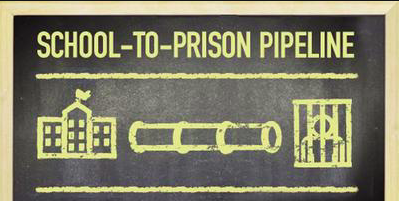The School-to-Prison Pipeline: Implications of Demographics on Outcomes
In their study entitled “To educate or to incarcerate: Factors in disproportionality in school discipline,” Matthew Mizel and colleagues investigate the disparities in discipline that play a major role in the School-to-Prison Pipeline. The School-to-Prison Pipeline is characterized by the push out of children in public schools to juvenile and criminal detention centers. Mizel and colleagues discuss the events that occur prior to incarceration such as office referrals, suspensions and expulsions. Among the many factors studied, it was determined that “African Americans, students whose parents had less education, and boys were more likely to be suspended/expelled” (Mizel, 2019). The study proved that minority groups are perpetually at a disadvantage. The implications of the lack of education among parents within these groups leads to the pushout of children from schools causing them to lose out on an education also. This cycle displays how public education systems in the United States try to keep certain groups down while the privileged remain at the top.
Other scholarly sources such as Johanna Lacoe and Matthew Steinberg from the American Education Research Association look at suspension and expulsion as a whole and separate from the implications of race, gender, class and other factors. Rather, they study how suspensions and expulsions affect student outcomes. The results indicate that “correlational evidence [shows] negative associations between the receipt of any out-of-school suspension and academic achievement” (Lacoe and Steinberg, 2019). Additionally, “suspensions are correlated with an increased risk of school dropout” and a higher probability of becoming associated with illegal and violent behavior (Lacoe and Steinberg, 2019). Connecting the prior study by Mizel and colleagues, it is obvious that the various outcomes caused by suspension and expulsion will have the largest effect on minority groups. Moreover, the authority figures within schools must remember the ramifications of extreme discipline policies on their student’s futures. Today, educators are too quick to hand out consequences, forgetting the influence of their actions.
